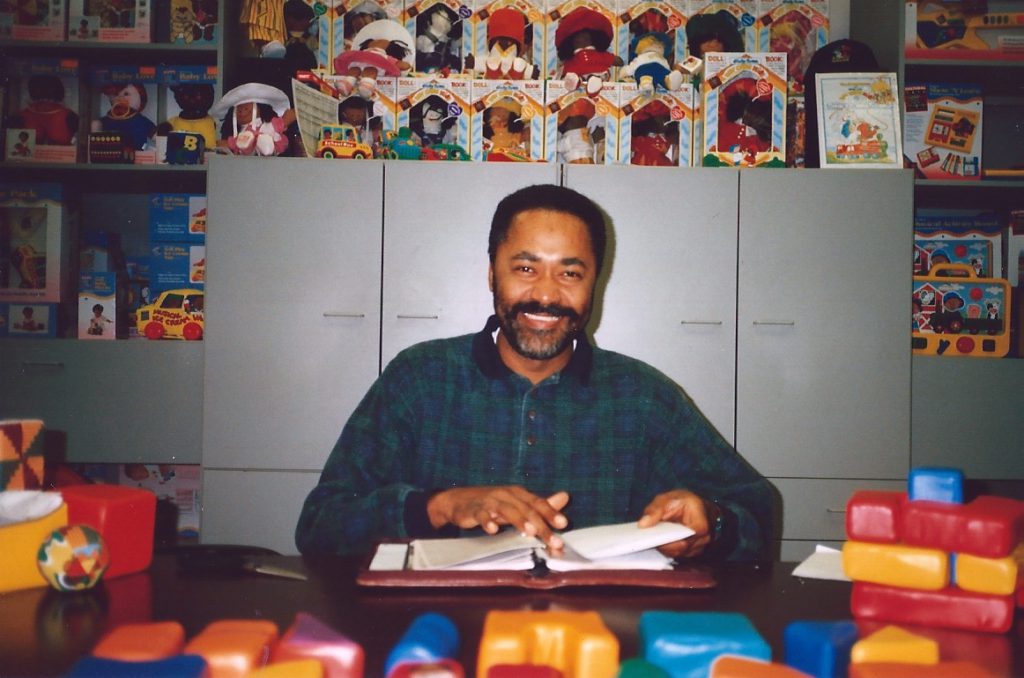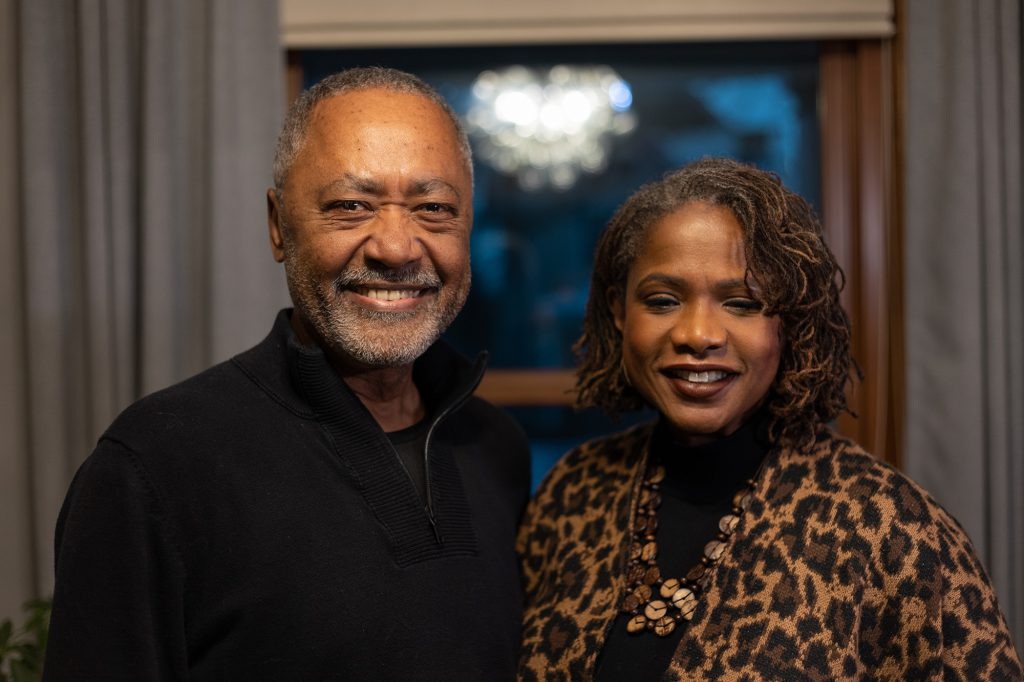Born in Jamaica to a Pentecostal minister and a seamstress, Don was the third of ten children. Like their neighbors, his family was poor–and each day, he walked from their neighborhood to school in a wealthy part of the city, surveying the devastating impact of poverty and inequality on his neighbors. A talented student and self-taught musician, he later gave up a career touring as the lead of the Don Sam Singers–Jamaica’s number one gospel act–to emigrate to America and pursue his education.

Without financial support, Don worked full-time as a security guard while he attended New Yorks’ Pratt Institute during the day. Utilizing his artistic talents, he then embarked on a rewarding career as a toy designer, working as head of research and development with some of the industry’s most recognizable companies–including Hasbro, Playskool, and Milton Bradley) before eventually landing in Minnesota.
Having never forgotten that walk from the “poor side of town” to his school, he committed himself to using the strength and resources that his success brought him for the benefit of those who most need it. For him, that meant a life dedicated to living in those neighborhoods often overlooked or forgotten by the people in power.
While living in the Selby-Dale neighborhood of Saint Paul, he met the love of his life through their dedicated volunteerism in the church. Fortunately for him, Sondra Hollinger had a soft spot for this single father with custody of his young son–and their courtship continued through her time serving with the Peace Corps in Africa. After all of the letters, the occasional international call, and some of the earliest use of email (you’ve got mail!), they were back together in Minnesota, building a family in North Minneapolis.
While the blessings grew for Don and Sondra, their neighborhood needed help. For their community, the Samuels home served as refuge from the realities of the street that preyed upon their children–drugs, gangs, and tragic violence. They called together vigils in the wake of the deadly shootings plaguing their neighborhood. They organized their neighbors into patrols to address crime in their community, and they brought residents together to demand more resources for North Minneapolis from their elected leaders.

When a seat on the City Council opened up, Don stepped forward, winning an improbable victory over an opponent with more resources and the support of the local political establishment. He continued to bring attention to the problems facing his ward–even popping up a table and creating open “office hours” on the precise location of the most recent violent crime. Additionally, he initiated the creation of Minneapolis’s “Ban the Box” policy, making it the first city in the state to do so. Through his persistence, the culture of City Hall was changing and the residents of North Minneapolis were no longer being overlooked as the city allocated resources.
After leaving City Hall, Don has continued to serve his community. In addition to serving on the school board, Don is the CEO of Microgrants, an organization that targets small grants at individuals and organizations in communities. Through Microgrants, Don started “Lights On,” a program providing repair vouchers up to $250 instead of tickets to replace broken lights. In 2021, he was part of the Minneapolis 8 and their successful lawsuit to compel the city to restore the number of police officers in order to ensure a higher degree of safety for all communities in the city.
When he’s not fighting to improve the opportunities available to his neighbors, Don enjoys fixing and building things, gardening, traveling, photography, writing poetry, and riding his bike. Every month or so, he delivers a sermon at his church–and until the campaign began, he and Sondra co-hosted a weekly show on local radio.
